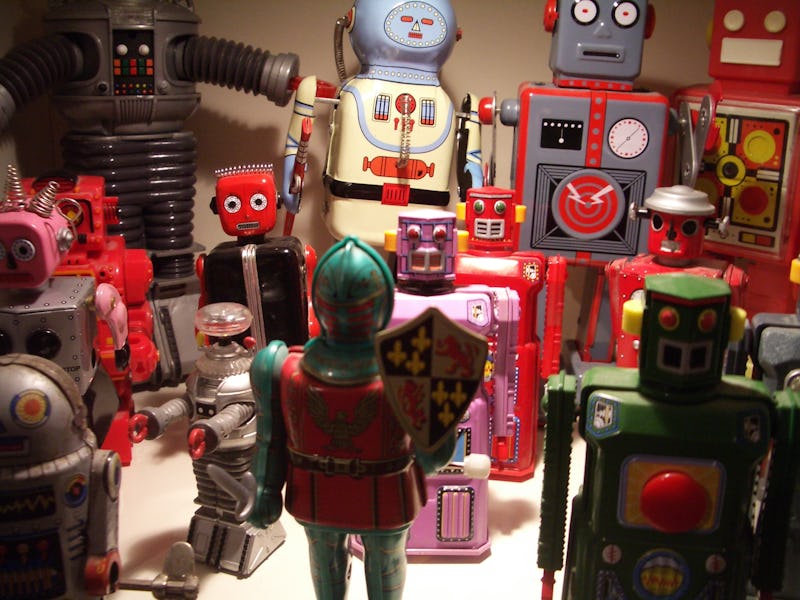The European Union Has a Plan for Robot "Kill Switches"
In case of emergency.

When the robots come for us, the European Union wants us to have a way to stop the whole thing in its tracks. The European Union drafted some rules for A.I. and autonomous cars that say robots should have “kill switches” — our safety might depend on it.
“A growing number of areas of our daily lives are increasingly affected by robotics,” Rapporteur Mady Delvaux said. “In order to address this reality and to ensure that robots are and will remain in the service of humans, we urgently need to create a robust European legal framework.”
The Legal Affairs Committee called for these EU-wide rules on robotics Thursday. The rules discuss the safety, security, and ethics of A.I., as well as the economic potential, since A.I. can create and destroy jobs in various fields, including health care and transportation. Members of the European Parliament suggest creating a European agency specifically about robotics and A.I., as well an ethical conduct code to regulate A.I. They recommended that the code should require “kill switches,” that can shut off a malfunctioning robot or stop it in its tracks in an emergency.
As the draft says, people should be able to use robots without “risk or fear of physical or psychological harm.” If a robot that operates autonomously or semi-autonomously goes out of control, there should be a way to quickly stop it.
But although robots should have kill switches, governments may have to define personhood for robots in the future. Members of the European Parliament’s brought up the possibility of creating a legal status called “electronic persons” for advanced autonomous robots. This might sound bizarre, but in some situations, like cases of damage, this can help clarify responsibility.
The whole thing was inspired by science fiction writer Isaac Asimov’s three rules of robotics. His rules on robotics say: A robot may not injure a human being or, through inaction, allow a human being to come to harm, a robot must obey the orders given it by human beings except where such orders would conflict with the First Law, and a robot must protect its own existence as long as such protection does not conflict with the First or Second Laws. The European Union agrees.
On a somewhat dark note, the proposal addresses that within a few decades, A.I. could become smarter than humans. If humans don’t take precautions, it could pose a challenge for humans to “control its own creation and, consequently, perhaps also to its capacity to be in charge of its own destiny and to ensure the survival of the species.”
Sounds apocalyptic, but we might need A.I. rules and ethics for our survival. The full house will vote on the proposals in February.